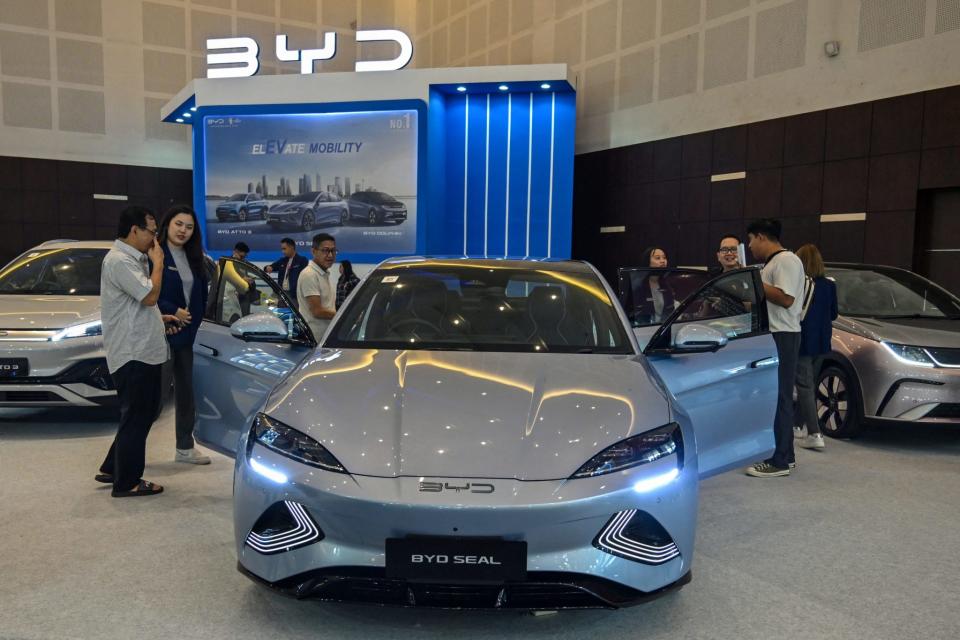Porsche and Ferrari sales slump in China as car buyers flock to EVs instead

Luxury car sales plummeted in China as consumers face increased pressure from a lagging economy, turning their heads toward lower-cost EVs instead.
Deliveries for luxury brands, including Porsche and Ferrari, fell drastically in the first quarter in China, a stark contrast from their performance in the same period last year. Porsche’s first-quarter deliveries fell 24% from a year earlier while Ferrari shipments to China dipped 25%. Sales for BMW and Mercedes-Benz also decreased year over year, the Wall Street Journal reported.
The disappointing first-quarter results for luxury carmakers in China partly reflect turmoil in the economy fueled by a struggling real estate sector. Economists have criticized China’s attempt to right the ship because the approach focuses more on supporting production and exports than on consumer demand.
Lackluster demand has impacted, but so far taken less of a toll on, EVs. About 1.03 million EVs were sold in China in the first quarter, which marked a slowdown from continuous growth since the second quarter of 2023, according to government figures.
But while growth was lower than usual, EV sales were still up 14.7% from a year ago. Sales of “new energy vehicles,” which include plug-in hybrids, jumped 5.7% year over year to a sales figure of 1.71 million in the first quarter. In the U.S., sales of EVs increased by 3%, or about 270,000 vehicles, during the same period.
Thanks to price reductions brought on by the entry of new homegrown automakers, EV sales continued to fare better in May. Major automakers such as the Warren Buffett–backed BYD, Nio, and Seres Group saw strong growth last month, Bloomberg reported. Seres Group led the pack by tripling its sales numbers from a year earlier. At the same time, Nio reported a 234% increase in May while BYD’s sales jumped just over 25%.
While foreign brands have traditionally dominated vehicle sales in China, lately a flurry of domestic players have sought to capture more of the market. Chinese automakers together surpassed 50% of car sales in the country for the first time in July. A decade ago, French automakers such as Citroen, Peugeot, and Renault cumulatively made up about 4% of China’s market share, but they have now collapsed below 1%, Bloomberg reported.
Earlier this year, Tesla CEO Elon Musk praised Chinese automakers as “the most competitive in the world,” for their quick growth.
This story was originally featured on Fortune.com

 Yahoo Finance
Yahoo Finance 